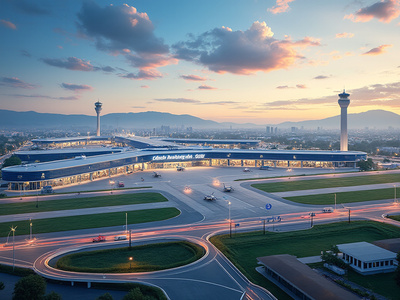
Thai Auto Industry Seeks Recovery Amid Ongoing Challenges
Executives express cautious optimism ahead of the Bangkok International Motor Show, despite ongoing slump in domestic sales and production.
The Thai automotive industry is poised for a cautious revival as it prepares for the Bangkok International Motor Show, set to commence on March 26, 2025, at Impact Challenger Hall, Muang Thong Thani, and run until April 6. Industry leaders have indicated that recovery may be gradual, but they believe signs of stabilization are emerging.
Pongsak Lertrudeewattanavong, vice-president of MG Motor’s Thailand unit, asserted that the 1.7-trillion-baht sector has likely “bottomed out” following 20 consecutive months of declining domestic car production.
Recent data from the Federation of Thai Industries (FTI) revealed a 6.7% decrease in domestic car sales for February compared to the previous year, an improvement from the 12.3% decline observed in January.
Car production decreased by 13.6% in February, with 115,487 units produced, following a 24.6% drop in January.
Similarly, exports fell by 8.3% in February to 81,323 units after a significant downturn of 28.1% the month prior, largely attributed to intensifying competition from Chinese manufacturers and stricter emission regulations in some countries.
Industry representatives highlight that soaring household debt, currently at approximately 89% of GDP, and stringent lending conditions are obstructing the sector’s recovery.
The FTI reported auto loan rejection rates have reached as high as 70%.
Surapong Paisitpattanapong, spokesperson for the FTI’s automotive division, cautioned that although February’s results showed less severe declines, they do not yet indicate an actual recovery, urging stakeholders to await forthcoming March data for a clearer picture.
Despite the challenging conditions, there are hopes for modest improvement in car production, which the FTI forecasts to rise by 2% in 2025 after experiencing a significant 20% drop in 2024, the lowest production output recorded in four years.
Local sales reached a 15-year low last year, with only 572,675 vehicles sold.
However, industry executives indicate potential recovery to approximately 600,000 units this year, marked by the peak market performance of 1.44 million vehicles sold in 2012.
Automotive manufacturers are implementing measures such as cost-cutting initiatives and promotional efforts to stimulate demand during the motor show, which is anticipated to generate around 50,000 car orders annually.
Siamnat Panassorn, vice-president of the Electric Vehicle Association of Thailand, noted that economic indicators like strong exports, which surged 14% last month, along with government support including tax incentives for hybrid vehicles, are contributing positively to the sector.
Siamnat emphasized the critical importance of pickup trucks, which constitute about one-third of domestic auto sales, stating that any government support would significantly benefit the industry’s backbone.
In addition, Thee Permpongpanth, CEO of Mazda’s Thai unit, expressed optimism that total vehicle sales may slightly exceed last year’s figures, citing evidence of smaller declines reported in the early months of 2025.
The luxury segment presents opportunities for growth in the automotive market, with Zeekr, a Chinese electric vehicle manufacturer, targeting a fivefold increase in sales in Thailand, projecting to sell 5,000 units this year.
Alex Bao, the company’s Southeast Asia regional chief, acknowledged positive underlying factors for a potential market recovery, though he retained a cautious outlook on the broader industry context.
Pongsak Lertrudeewattanavong, vice-president of MG Motor’s Thailand unit, asserted that the 1.7-trillion-baht sector has likely “bottomed out” following 20 consecutive months of declining domestic car production.
Recent data from the Federation of Thai Industries (FTI) revealed a 6.7% decrease in domestic car sales for February compared to the previous year, an improvement from the 12.3% decline observed in January.
Car production decreased by 13.6% in February, with 115,487 units produced, following a 24.6% drop in January.
Similarly, exports fell by 8.3% in February to 81,323 units after a significant downturn of 28.1% the month prior, largely attributed to intensifying competition from Chinese manufacturers and stricter emission regulations in some countries.
Industry representatives highlight that soaring household debt, currently at approximately 89% of GDP, and stringent lending conditions are obstructing the sector’s recovery.
The FTI reported auto loan rejection rates have reached as high as 70%.
Surapong Paisitpattanapong, spokesperson for the FTI’s automotive division, cautioned that although February’s results showed less severe declines, they do not yet indicate an actual recovery, urging stakeholders to await forthcoming March data for a clearer picture.
Despite the challenging conditions, there are hopes for modest improvement in car production, which the FTI forecasts to rise by 2% in 2025 after experiencing a significant 20% drop in 2024, the lowest production output recorded in four years.
Local sales reached a 15-year low last year, with only 572,675 vehicles sold.
However, industry executives indicate potential recovery to approximately 600,000 units this year, marked by the peak market performance of 1.44 million vehicles sold in 2012.
Automotive manufacturers are implementing measures such as cost-cutting initiatives and promotional efforts to stimulate demand during the motor show, which is anticipated to generate around 50,000 car orders annually.
Siamnat Panassorn, vice-president of the Electric Vehicle Association of Thailand, noted that economic indicators like strong exports, which surged 14% last month, along with government support including tax incentives for hybrid vehicles, are contributing positively to the sector.
Siamnat emphasized the critical importance of pickup trucks, which constitute about one-third of domestic auto sales, stating that any government support would significantly benefit the industry’s backbone.
In addition, Thee Permpongpanth, CEO of Mazda’s Thai unit, expressed optimism that total vehicle sales may slightly exceed last year’s figures, citing evidence of smaller declines reported in the early months of 2025.
The luxury segment presents opportunities for growth in the automotive market, with Zeekr, a Chinese electric vehicle manufacturer, targeting a fivefold increase in sales in Thailand, projecting to sell 5,000 units this year.
Alex Bao, the company’s Southeast Asia regional chief, acknowledged positive underlying factors for a potential market recovery, though he retained a cautious outlook on the broader industry context.











